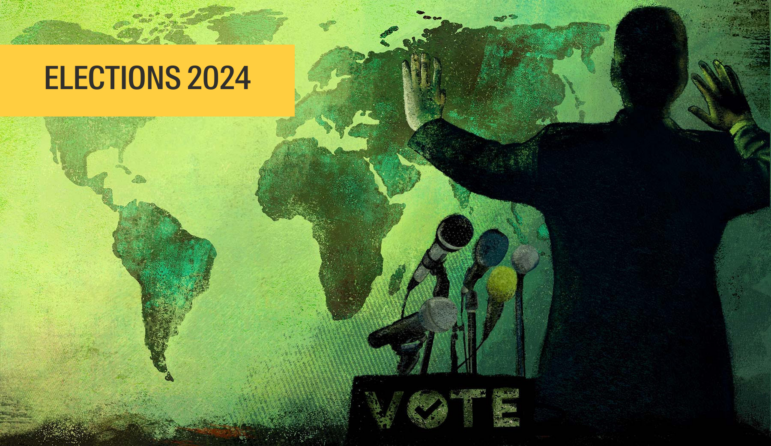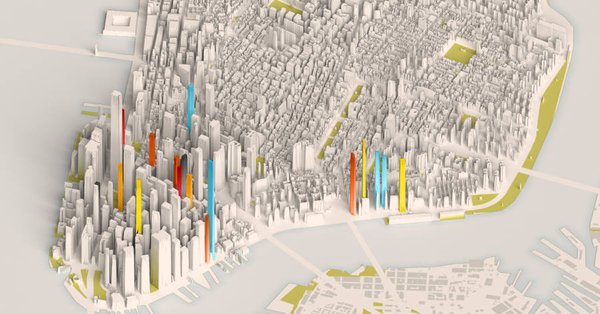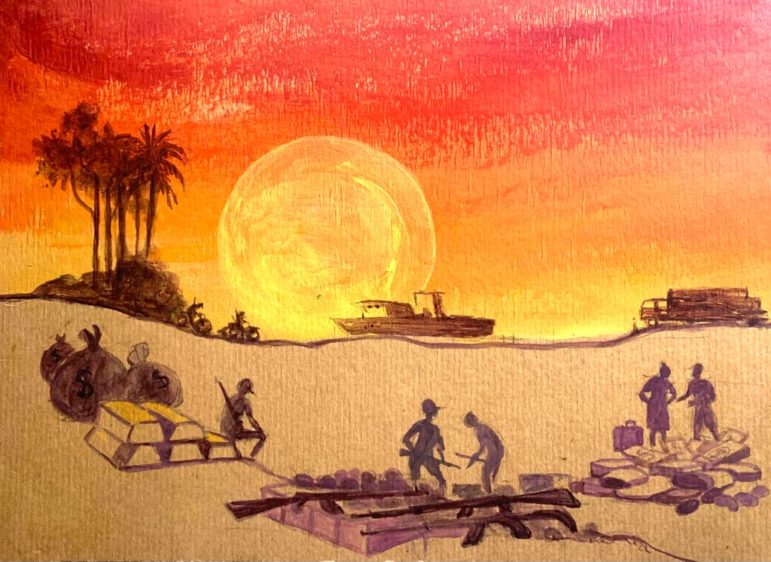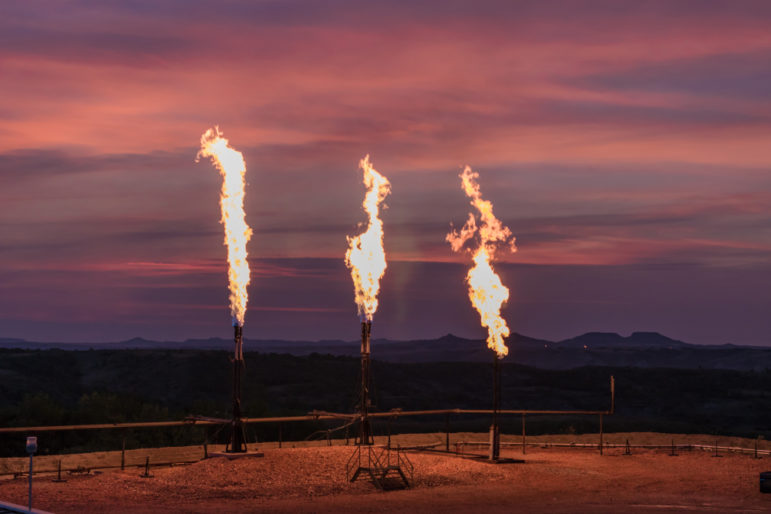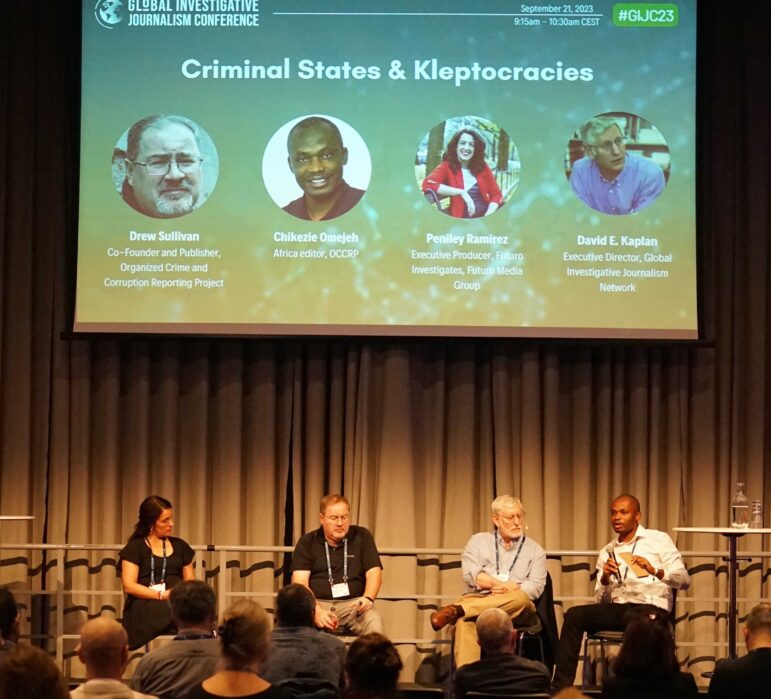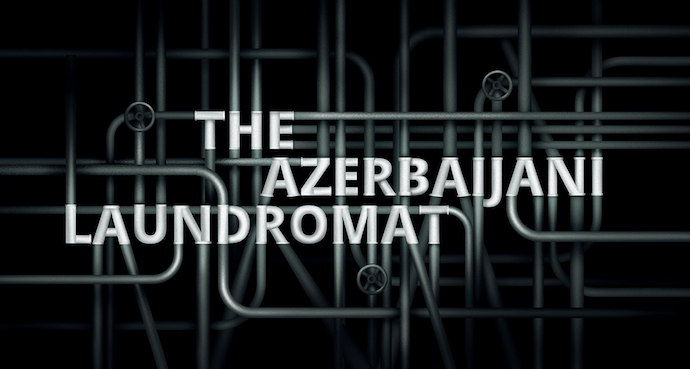

How They Did It: The Azerbaijani Laundromat
Read this article in
In September, the Danish national newspaper Berlingske, in partnership with the Organized Crime and Corruption Reporting Project (OCCRP) and other international media partners, exposed a complex money laundering scheme led by Azerbaijan’s elite. The stories were based on records from Danske Bank that were leaked to Berlingske journalists and the collaborative investigation across 16 countries that followed.
 The stories revealed that, between 2012 and 2014, even as Azerbaijan’s government arrested and silenced journalists and human rights activists wholesale, $2.9 billion connected to the country was siphoned through European companies and banks. Some of the funds were used to whitewash the country’s reputation, others to support luxury lifestyles.
The stories revealed that, between 2012 and 2014, even as Azerbaijan’s government arrested and silenced journalists and human rights activists wholesale, $2.9 billion connected to the country was siphoned through European companies and banks. Some of the funds were used to whitewash the country’s reputation, others to support luxury lifestyles.
Here’s the story behind the story, about how journalists reported it, what it takes to work in a place like Azerbaijan and how a civil society partnership helped increase its impact.
The Bank Leaks
Eva Jung, an investigative reporter for Berlingske, explained that it was not a coincidence that her newspaper landed the leaked banking records.
 Berlingske was no stranger to collaborative reporting. OCCRP had invited the publication to join the Russian Laundromat Exposed reporting team in late 2016, which documented a separate but connected money laundering scheme.
Berlingske was no stranger to collaborative reporting. OCCRP had invited the publication to join the Russian Laundromat Exposed reporting team in late 2016, which documented a separate but connected money laundering scheme.
This was Berlingske’s first sizeable international cooperative investigation, and it had a major impact in Denmark. Danish Prime Minister Lars Loekke Rasmussen reacted to the stories publicly, telling Denmark’s TV2: “It makes me sad and angry.”
One of the main banks involved in the scheme was Danske Bank — Denmark’s largest. Suspecting there was more to unearth, Berlingske reporters continued investigating its Estonian branch afterwards.
“That’s what landed us this major leak,” Jung said.
The new data that reporters were offered came in the form of bank account statements containing 16,000 transactions. The Berlingske reporters understood from the start that the accounts were probably connected to the Azerbaijan regime.
They found the documents overwhelming.
“When we found the first real names in the material and found out they were European politicians, we had to sit down,” recalled Jung. “This was actually the first finding, and it ended up being the most important story: Azerbaijan’s regime had been secretly paying European politicians.”
The Collaborative Process
Berlingske soon contacted OCCRP to collaborate on the investigation.
“It would probably have taken us years to go through 16,000 bank transfers on our own,” Jung said, “and still we would not have found all these stories.”
 Within weeks, Berlingske and a group of OCCRP reporters met in person to go through some of the initial findings.
Within weeks, Berlingske and a group of OCCRP reporters met in person to go through some of the initial findings.
“From the very first discussions with Eva, it seemed that the datasets behind the Russian Laundromat and what we later agreed to name the Azerbaijani Laundromat were very similar,” said OCCRP co-founder and executive director Paul Radu.
Among the records, Radu noticed thousands of secretive banking transactions by people hiding behind British-registered companies. Although OCCRP data analysts would eventually transform the leaked data into CSV files and other easily searchable documents, Radu “just couldn’t wait.”
“I just went through every page of text in more than 1000 pages looking for familiar names, anomalies or anything else that might have been relevant,” said Radu. He immediately saw that, compared with the Russian Laundromat transactions, the people in the new leaks were careless in covering up their trails.
“Names of important politicians, businessmen and even journalists were actually attached to the transactions,” said Radu. “At the same time, many of the transactions showed the involvement of Azerbaijani governmental structures.”
Assembling the Investigative Team
After the initial data analysis in which OCCRP’s data team programmed in-house tools to examine the bank transactions, reporters on both sides started approaching other international partners. OCCRP and Berlingske assembled the project team based on which countries had the most transactions and on the most important names identified in the preliminary research. The reporters leveraged public records, internet searches and OCCRP’s Investigative Dashboard Search to run names.
Both Berlingske and OCCRP recognized that reporting from within Azerbaijan would be key, so they invited veteran investigative reporter Khadija Ismayilova to join the project.
Radu, Ismayilova and Jung all emphasize that constant communication between all the partners involved was key.
“Everyone was finding a piece of the puzzle,” Ismayilova said. “Sometimes the information led to dead ends, but it was helpful because we’d find something new related to a totally different story and that’s great.”
“From around a month before publication and until now, on most days, many of us have been in contact several times a day,” added Jung.
The reporters across multiple countries also used a secure online forum created by OCCRP’s tech team to share their findings and discuss leads.
“Cross-border collaborative research is always an emotional rollercoaster,” said Radu. “It is highs and depressing lows that lead to the best story.”
Making Breakthroughs
“The big breakthrough for these stories was when we started mapping and matching the dates of money flows to these politicians and their plentiful actions in favor of the regime in Azerbaijan,” Jung said.
“It was very exciting to see how a team member would identify an interesting name in the transactions database and how the others would jump in to assist with research,” added Radu.
One of those names was Yaqub Eyyubov, the first deputy prime minister of Azerbaijan.
The banking records showed that Eyyubov and his two sons — one of whom, Emin Eyyubov, is Azerbaijan’s ambassador to the Council of Europe — used the Laundromat money to pay for medical services in Europe and the United States.
“This was an important piece of information in the overall context, but the bigger story was beyond the initial dataset,” said Radu.
Emin Eyyubov immediately tried to dismiss the story, saying that the payments, which amounted to a few thousand dollars, were just a “concierge type of service” that the Laundromat companies were providing.
But the breakthrough came when reporters analyzed the transfers conducted by Rosoboronexport, Russia’s main state-owned weapons export company. It turned out that a significant portion of the Russian money went to Velasco International Inc., a secretive company based in the British Virgin Islands (BVI) that held bank accounts in Hungary and Cyprus.
Reporters then turned to a previous set of leaks: the International Consortium of Investigative Journalists’ Panama Papers.
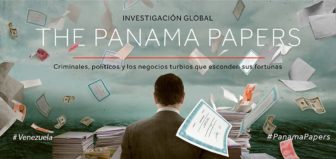 In the Panama Papers database, reporters found the beneficial owner of the BVI company, Orkhan Eyyubov. Was Orkhan Eyyubov another member of the Eyyubov family? Was the receiving company connected to one of the most powerful politicians in Azerbaijan?
In the Panama Papers database, reporters found the beneficial owner of the BVI company, Orkhan Eyyubov. Was Orkhan Eyyubov another member of the Eyyubov family? Was the receiving company connected to one of the most powerful politicians in Azerbaijan?
In Azerbaijan, Ismayilova did more digging. She and her colleagues managed to prove that the BVI company kept its records at Yaqub Eyyubov’s address in Baku, the Azerbaijan capital.
Meanwhile, explained Radu, “Hungarian reporters put the local pieces of the puzzle together and managed to find the beneficial owner, once again, in local records. It all fell into place after two days of constantly challenging the initial findings, waiting and trying to get answers from people whose only interest was to hide it all.”
“It was the combination of Azerbaijani local voters’ registry searches, other databases and, most importantly, legwork, that brought the final proof that our initial assumptions were correct,” he continued. “The Eyyubov family was indeed deeply involved in the Azerbaijani Laundromat.”
Inside the Dragon’s Nest
The Azerbaijani Laundromat stories would not have been possible without reporting from inside the country. That’s why veteran Azerbaijani investigative reporter Ismayilova was such a key player.
A Radio Free Europe/Radio Liberty reporter and OCCRP partner, Ismayilova had experienced firsthand the Azerbaijani government’s efforts to silence critical journalism. She faced smear campaigns and even imprisonment for her reporting. Though she’s still under a travel ban and continues to face great risks, she was keen to join the team. Other local reporters who remained anonymous joined her in the effort.
Azerbaijani reporters routinely face challenges that many journalists in other countries will never experience in their careers.
“In our country they’re arresting journalists on trumped-up charges for ‘blackmailing’ people just because they’re asking tough questions or being critical (in interviews),” Ismayilova said.
One important task was to contact companies based in Azerbaijan that were involved in the Laundromat scheme.
“I had to find out whether these companies were still in operation or not, whether they were based at the same address or not, and whether the people connected to them were the people we suspected them to be,” she said.
Ismayilova made sure to keep her work on the investigation confidential until just before publication. She made her initial calls undercover, posing as an employee or a client. By the time she went back to them right before publication to inform them she was a journalist and ask for comment, the people she contacted denied any knowledge or connection to the companies for whom they worked.
Ismayilova was careful to take precautions to ensure her safety.
“Every time I went in to interview someone, if it was face-to-face interview, I tried to make sure there was a witness with me, sitting at another cafe table, who was ready to film if something happened to (me and to) document things if something went wrong,” she said.
Although investigations like the Azerbaijani Laundromat are dangerous, Ismayilova finds the work fascinating.
In this project, she found it particularly interesting to speak to people who were involved in criminal activity without understanding that they were doing something wrong. She recalled an interview with Maharram Ahmadov, a modest driver who lives on the outskirts of Baku.
Ahmadov was a front for Laundromat companies channeling millions of dollars.
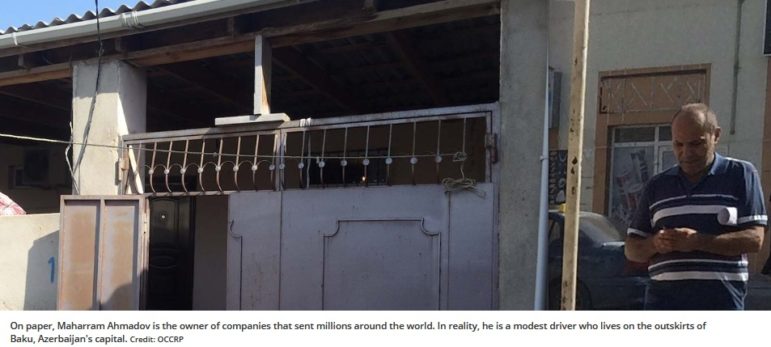 “He didn’t know what he was doing or how much money he was operating with,” said Ismayilova. “He definitely didn’t know the criminal nature of the business he was fronting.”
“He didn’t know what he was doing or how much money he was operating with,” said Ismayilova. “He definitely didn’t know the criminal nature of the business he was fronting.”
Another highlight involved reporting on a story about Kalin Mitrev, the European husband of UNESCO Director-General Irina Bokova who received hundreds of thousands of dollars from the Laundromat.
Mitrev said that the payments had been legitimate fees for “consultancy work” he had done for an Azerbaijani company called Avuar-Co LLC. Ismayilova set out to verify his claims.
She discovered that Avuar was supposed to be working on flood recovery projects. Digging through social media, she and her anonymous Azerbaijani reporting team identified the company’s Baku-based manager and contacted him directly.
“I just went ahead and said I was a journalist and this is what I’m asking for,” she said. “He was totally surprised and didn’t know the company was supposed to be working on flood recovery. And then when he realized he was supposed to know all this, he tried to, basically, clean things up, but he couldn’t. It was too late.”
Safety First
OCCRP’s Radu stressed that safety comes first. “You don’t want team members working in harsh, oppressive environments such as Azerbaijan to get hurt.”
He said that the reporters used secure communication channels to exchange information and did advance research to curb any risks. Ismayilova advises journalists in other countries to do their homework before approaching the target of their stories for interviews.
“Interviews should be the last thing done,” she said. “It’s the same practice in every country, but risks in our country are much higher and you can endanger not just yourself but your colleagues; you can compromise the communication tools. Better to stay away from the people involved in your stories until the very last moment.”
A Civil Society Partnership
The impact of the investigation was extended by an initiative that connected OCCRP’s network of investigative reporters with Transparency International (TI), a network of international anti-corruption advocates who can act on reporters’ findings.
 The partnership, called the Global Anti-Corruption Consortium, was launched last year. The Azerbaijani Laundromat is the first major project to fall under the consortium’s scope.
The partnership, called the Global Anti-Corruption Consortium, was launched last year. The Azerbaijani Laundromat is the first major project to fall under the consortium’s scope.
“Working with investigative reporters is important for anti-corruption activists like Transparency International,” said TI’s Advocacy Director, Casey Kelso. “It’s only when corruption is uncovered that we can start our campaigns to stop it.”
Within 24 hours of the project’s publication, TI advocates launched initiatives to hold powerful institutions, such as the Parliamentary Assembly of the Council of Europe (PACE), accountable. Some PACE members were spotlighted in the stories as recipients of Laundromat funds. Among TI’s efforts was a campaign to encourage European citizens to write to parliamentarians and demand that they get involved. The organization also presented the evidence gathered by reporters to PACE’s special corruption investigative group.
OCCRP reporters are also seeing the benefits of the civil society partnership.
“TI activists can go where reporters can’t, and can greatly amplify an investigative project,” said Radu. “I believe this kind of partnership is the future, if done right and with clear demarcations between activism and journalism.”
On the other hand, Ismayilova said, in repressive countries, it’s extremely difficult to remain a journalist and not cross the line into activism.
“The journalist unwillingly becomes a side of their own story the moment they’re denounced as an enemy of the state for simply doing reporting,” she said. “Journalists get harassed, attacked, arrested, and beaten.
“This is the first time when I’m seeing the immediate impact of a story that we wrote from inside. So far, it’s been outside the country, but I believe it won’t stop there.”
The Azerbaijani Laundromat was uncovered through a joint investigation by OCCRP; Berlingske (Denmark); The Guardian (UK); Süddeutsche Zeitung (Germany); Le Monde (France); Tages-Anzeiger and Tribune de Genève (Switzerland); De Tijd (Belgium); Novaya Gazeta (Russia); Dossier (Austria); Atlatszo.hu (Hungary); Delo (Slovenia), RISE Project (Romania), Bivol (Bulgaria); Aripaev (Estonia); Czech Center for Investigative Journalism (Czech Republic); and Barron’s (US). This project is part of the Global Anti-Corruption Consortium, a collaboration started by OCCRP and Transparency International.
 Stella Roque is communications officer for OCCRP and Transparency International’s Global Anti-Corruption Consortium. Prior to joining OCCRP, she was a freelance writer and editor in Paris. She was also a researcher for The Centre for Investigative Journalism in London working with broadcast reporter Andrew Jennings on the FIFA corruption investigation.
Stella Roque is communications officer for OCCRP and Transparency International’s Global Anti-Corruption Consortium. Prior to joining OCCRP, she was a freelance writer and editor in Paris. She was also a researcher for The Centre for Investigative Journalism in London working with broadcast reporter Andrew Jennings on the FIFA corruption investigation.

